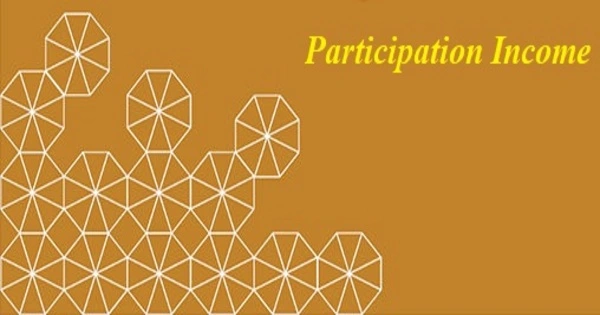Participation income is a type of universal basic income (UBI) that provides every citizen with a certain amount of income as a right of citizenship, regardless of their income or employment status. The goal of participation income is to ensure that everyone has access to a basic level of financial security and to support greater social and economic equality.
Unlike other forms of UBI that are typically paid for through taxes or other government revenue sources, participation income is funded through a public fund that is generated by fees on natural resources or other shared assets. The idea behind this approach is to recognize that these resources belong to everyone and should be used to support the common good.
The idea behind participation income is to provide people with a basic income that will enable them to participate in society without the fear of poverty or deprivation. This type of income is not based on employment or work, but rather on the notion that everyone deserves a basic level of financial security and stability. PI is a method of delivering unemployment benefits by creating socially useful but non-commercial employment opportunities that respect participants’ human dignity and may reduce clinical depression and the risk of suicide in vulnerable situations.
It is similar to Universal Basic Income in that everyone receives some financial security, but claimants are required to actively participate in socially desirable projects as temporary or contract employees of the social welfare entity, drawing basic wages and bonuses based on their attendance record (UBI) and incentives for notable achievement.
Proponents of participation income argue that it has a number of benefits, including reducing poverty and inequality, promoting social and economic stability, and providing individuals with more freedom and autonomy to pursue their goals and interests. Critics, on the other hand, raise concerns about the cost of implementing such a program, as well as the potential for it to disincentivize work and lead to higher taxes.
However, critics of participation income argue that it could be financially unsustainable and discourage people from seeking work or education. There are also concerns about the potential impact on the labor market and the economy as a whole.
Overall, participation income is a concept that has gained increasing attention in recent years, and it continues to be debated and explored as a potential solution to a range of social and economic challenges.
















